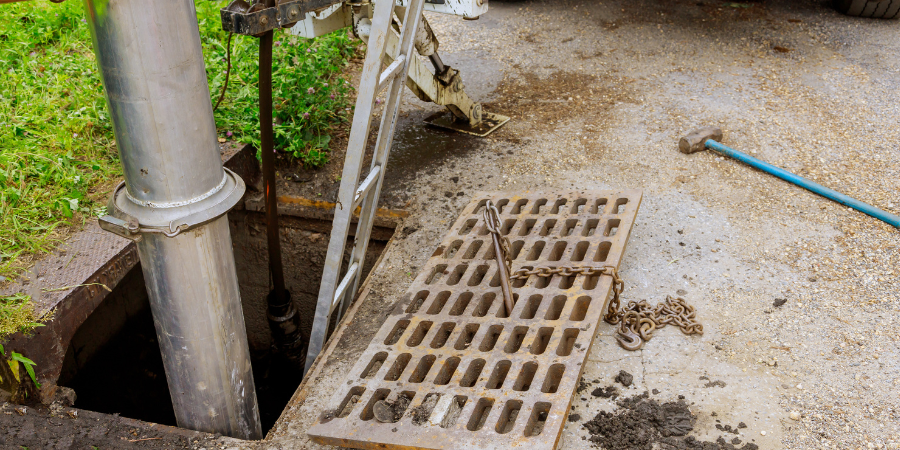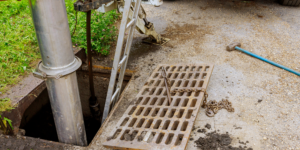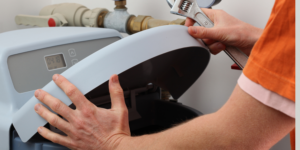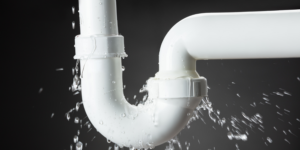Sewer line maintenance is a critical aspect of home and business upkeep that often goes unnoticed until a problem arises. At Aqua Bear Plumbing and Drain, we understand that maintaining a functional sewer system is vital for ensuring the health and safety of your property and its occupants. The sewer system is responsible for transporting waste away from your home, and any issues that prevent complete removal can lead to serious consequences, including backups, unpleasant odors, and even structural damage. This article intends to clarify why regular sewer line maintenance is essential and how it can prevent costly repairs and disruptions.
A well-maintained sewer system functions efficiently, protecting your home and the environment from potential hazards. By understanding the workings of your sewer system and recognizing common issues, you can take proactive measures to keep it in good condition. This article will explore what a sewer system is, how it operates, and the importance of preventative maintenance. We will also provide seasonal tips and emphasize the value of professional involvement in keeping your sewer lines in optimal shape.
What Is A Sewer System
A sewer system is an essential infrastructure that manages wastewater and sewage disposal for residential and commercial properties. It plays a crucial role in maintaining hygiene and preventing environmental contamination. Understanding the components and function of a sewer system can help homeowners appreciate the importance of proper maintenance.
Sewer systems consist of a network of pipes, pumps, and treatment facilities that transport wastewater from homes and businesses into the public system where the wastewater is treated. The main components include lateral lines that connect individual properties to the municipal sewer main, which carries waste away to a treatment facility. Each component must function effectively to ensure the efficient removal of waste and prevent blockages or backups. This article will concentrate on the individual home and business components of this entire system.
How A Sewer System Works
A home or business sewer line is an integral part of the plumbing system. It transports wastewater away from the property to a municipal sewer system or a septic tank. Here, we look at its basic operation.
Individual Drains
The system begins with smaller drain pipes that connect to plumbing fixtures and water-using appliances. These drains run from sinks, toilets, showers, dishwashers, and washing machines to carry away dirty water and waste material to keep homes and businesses sanitary.
Main Sewer Line
These drain pipes converge into a larger main sewer line, typically running underground, which directs the flow of wastewater out of the property. The sewer line operates primarily through gravity, with pipes sloping downward to facilitate the movement of waste. In some cases, when the terrain or design requires, pumps may be used to assist the flow. Properly functioning sewer lines are essential for maintaining sanitation and preventing the backup of sewage into the building, which can cause significant health hazards and damage.
Common Issues With A Sewer System
Sewer systems can experience various issues that impact their performance and reliability. Identifying these common problems early can prevent costly repairs and ensure the system operates smoothly.
Blockages
One common issue is blockages caused by debris, grease, or foreign objects that enter the system and restrict flow. These blockages can lead to backups, causing wastewater to overflow into homes or streets. Educating yourself and those using the plumbing system is essential to keeping your sewer line functioning properly. Proper waste disposal is the best defense against sewer line issues.
Tree Roots
Another issue is tree root intrusion, where roots infiltrate pipes in search of nutrients and moisture, causing cracks and blockages. Even the tiniest of cracks offers an opening for young tree roots, so ongoing monitoring of the line is essential.
Broken Lines
Cracks in sewer lines can occur due to a variety of factors, including aging pipes, ground movement, or the use of low-quality materials during installation. Over time, small cracks can form which expand and weaken the structural integrity of the pipes, eventually leading to a collapse.
Collapsed Lines
When a sewer line collapses, it can cause severe blockages, resulting in wastewater backup into the home or business, which poses health risks and can damage property. Additionally, sewer line collapses can lead to sinkholes or depressions in the ground, creating further physical hazards.
Corrosion
Corrosion is a significant concern for sewer lines, particularly those made from metal or older materials, as it can lead to a variety of problems that compromise the integrity and functionality of the plumbing system. Over time, corrosive elements in wastewater, such as chemicals, acids, and minerals, can gradually eat away at the interior walls of the pipes, thinning them and creating weak spots. This degradation can result in leaks, allowing wastewater to escape into the surrounding soil, which may cause environmental contamination and structural damage to nearby infrastructure.
Preventative Measures
Preventative maintenance is essential for keeping your sewer system in optimal condition. By implementing regular inspections and cleaning, homeowners can prevent common issues and prolong the life of their sewer lines.
Inspections
Routine inspections can identify potential problems before they escalate, allowing for timely repairs and adjustments. Professional plumbers use advanced technology, such as cameras, to inspect the interior of pipes and detect any signs of damage or blockage.
Cleaning The Sewer Line
Regular cleaning, using methods like hydro-jetting, can remove buildup and debris, ensuring that the system operates efficiently. By taking these preventative measures, homeowners can avoid costly repairs and ensure the reliable operation of their sewer system.
Proper Disposal Methods
In addition to professional help, home and business owners carry the responsibility of encouraging proper waste disposal. Grease, fibrous foods, and starchy items will quickly block a drain pipe. In the bathroom, nothing but toilet paper and human waste should be flushed. Incorrect disposal habits can block drain pipes and even the sewer line if enough neglect is present.
Seasonal Tips For Maintaining A Sewer System
Seasonal changes can impact the performance of your sewer system. Implementing specific maintenance tasks throughout the year can help address these seasonal challenges and maintain the system’s efficiency.
Spring
In the spring, focus on clearing debris from outdoor drains and gutters to prevent clogs. This is especially important since spring rainfall is typically heavy, and clogged drains and gutters will allow water to accumulate around the foundation of a home or business, weakening its structural integrity. Check for any damage caused by winter freeze-thaw cycles and make the necessary repairs to improve water flow.
Summer
During summer, monitor water usage to avoid overwhelming the system with excess wastewater. Heavy rains can overly fill the municipal sewer system or septic tanks leaving nowhere for wastewater to exit. Adding additional wastewater to the system will lead to backups and plumbing emergencies.
Fall
Fall is an ideal time to inspect and clean sewer lines, removing leaves and debris that could cause blockages. This is an ideal time since the soil is drier, and if excavations are required for repair or replacement, the conditions are more favorable than in winter.
Winter
In winter, insulate exposed pipes to prevent unnecessary stress on sewer lines that could lead to potential cracking. A small amount of prevention can go a long way in protecting sewer lines during the cooler winter months.
Why Professional Maintenance Is Important
Professional maintenance is crucial for ensuring the longevity and reliability of your sewer system. While homeowners can perform basic maintenance tasks, professional plumbers have the expertise and tools to address complex issues and provide comprehensive care.
Professional plumbers can conduct thorough inspections and use advanced equipment to diagnose problems that may not be visible to the untrained eye. They can recommend appropriate solutions and perform necessary repairs, ensuring that your sewer system operates efficiently. Regular professional maintenance can extend the life of your sewer lines and prevent unexpected emergencies that can cause significant disruption and expense.
Looking For Sewer Line Maintenance?
In conclusion, sewer line maintenance is a vital aspect of home and business upkeep that should not be overlooked. By understanding the components and function of your sewer system, you can appreciate the importance of regular maintenance and the benefits it provides. From preventing blockages and structural damage to ensuring efficient waste removal, proper sewer line maintenance is essential for protecting your property and the environment.
At Aqua Bear Plumbing and Drain, we are committed to helping you maintain a reliable and efficient sewer system. Our team of experienced professionals provides comprehensive maintenance services tailored to your needs. Whether you require routine inspections, cleaning, or repairs, we have the expertise to ensure your sewer system operates at its best.
If you want to safeguard your home or business with expert sewer line maintenance, contact Aqua Bear Plumbing and Drain today. We are the plumber you can trust to keep your sewer system in top condition and prevent costly issues. Your peace of mind is our priority, and we are here to provide the exceptional service you deserve. A well-functioning sewer line makes for a healthy home or business environment!



